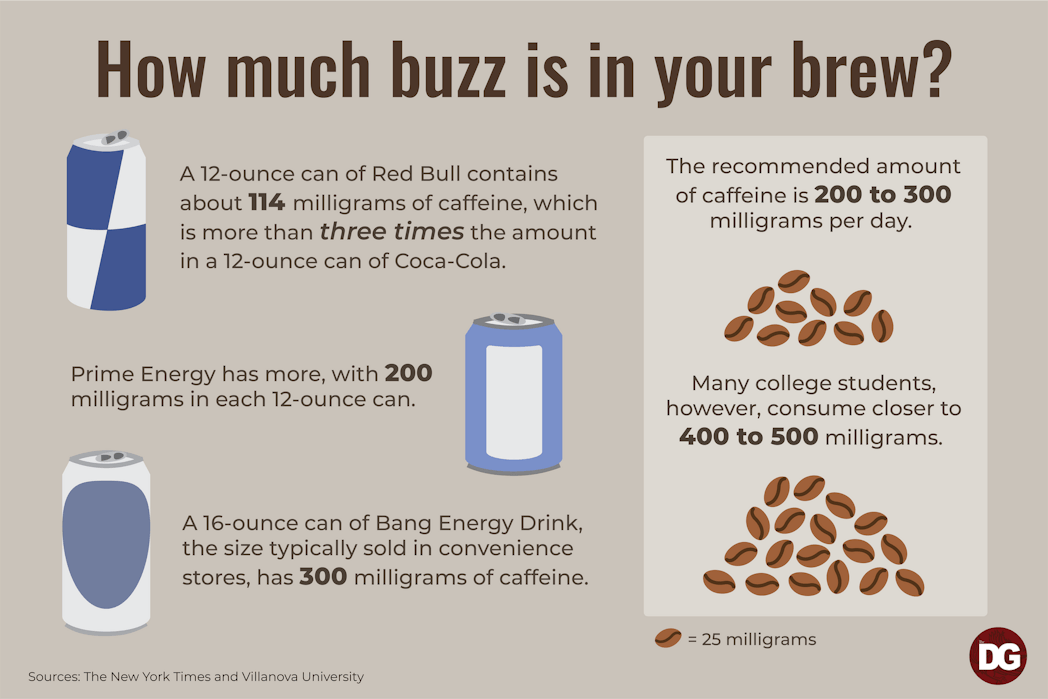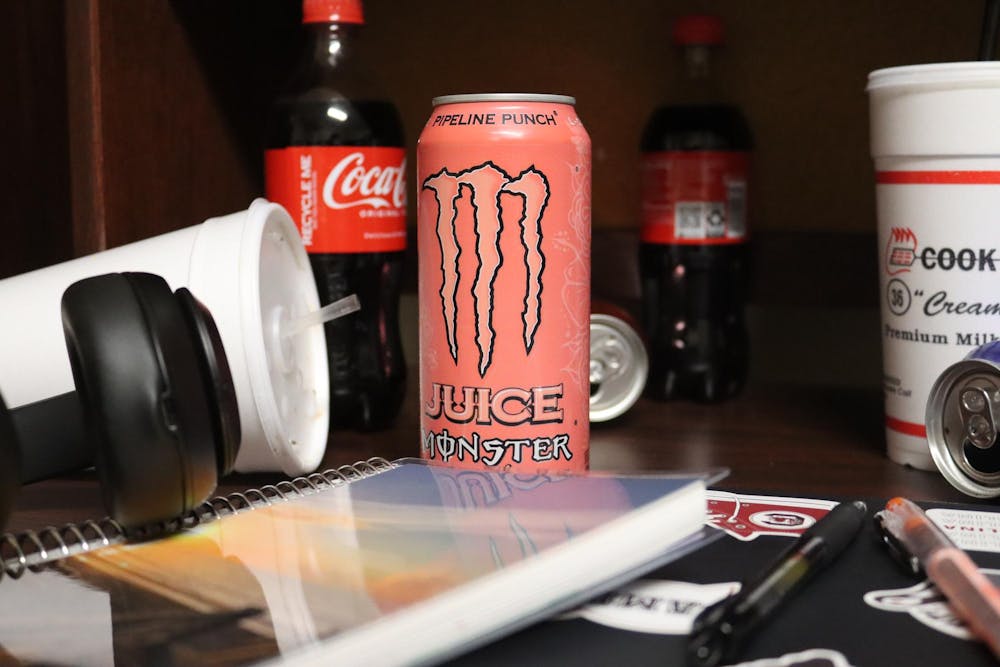Students need to reassess their caffeine drinking habits in order to maximize the benefits that caffeine can bring.
There have recently been two cases where people have died from cardiac arrest from drinking the Charged Lemonades sold by Panera Bread, which has about 390 milligrams in a 30-ounce cup, according to USA Today.
A 21-year-old, who had a prior heart condition, had multiple cups of the drink in the days leading up to the accident and a 46-year old, who had a chromosomal defiecny disordy, had three drinks in a row that same day, according to CNN.
Wrongful death lawsuits have been issued from the affecting families, stating the lemonade was advertised as a regular soft drink beverage and not as an energy drink.
Both cases have drawn attention from caffeine consumers about the amount of caffeine contained in beverages.
Young adults have been normalizing the consumption of excess caffeine though social media platforms, such as TikTok. Because of this, students have been inclined to think that overreliance is fine.
Although excess caffeine is considered dangerous, there are multiple health benefits when consumed properly. It has known benefits to decreasing heart failure and protects your liver, according to Johns Hopkins Medicine.
"The reality is, caffeine in and of itself, isn't necessarily the problem, but there are some chronic effects to this," Shawn Arent, the chair of USC’s department of exercise science, said. "It also depends on why the caffeine is being used."
Arent said that if a student is continuously drinking caffeine to stay awake, they will continue to be tired from the lack of sleep, sometimes causing really pronounced effects on their sleep.
College students often have this unhealthy association with caffeine.
Students often supplement their energy during late night study sessions with caffeine intake to maximize the rest of the night before a big test or for a hard class. This creates a perpetual bad cycle because then their sleep schedule is messed up and the students needs more caffeine the next day, Arent said.
Caffeine can’t be something that you rely on to evade sleep entirely. It’s okay to use stay up once every couple of weeks by drinking caffeine, but it will eventually have a severe impact on a student's sleep in the long run.

Students often fall to the use of energy drinks to help keep their energy, because of the high caffeine content compared to other beverages.
A 16-ounce can of Bang has a 300 milligrams of caffeine in it and a 12-ounce can of prime energy contains 200 milligrams of caffeine, according to The New York Times. Consuming multiple of these drinks far-exceeds the recommended daily caffeine intake.
The maximum caffeine that can be consumed by a healthy adult per day is 400 milligrams, according to the FDA.
"So many of these commercial beverages that are available, have a lot more caffeine than (students) realize they do," Arent said.
Soft drinks don't nearly have as much caffeine as energy drinks, which usually has 25 to 50 milligrams of caffeine. It is important to make that distinction before choosing beverages.
Good caffeine habits can be forged when the students have the right information. Some of the ways that students can form a healthy relationship is not drink caffeine as soon as one wakes up, avoid excess consumption and stop drinking once you feel jittery.
Arent said students should wait sometime before they drink caffeine to get its full effect. Usually, caffeine takes about an hour or two before it can take its full effect, so there is no need to down another cup of coffee immediately after.
Arent also said that students should try to avoid caffeine five to seven hours before they sleep and make sure to be aware of their daily caffeine intake so that it is not exceeding 400 milligrams.
Students need to understand what their body needs because different people may have different reactions to caffeine and probably don't need as much as the average person.
Some people could have cardiovascular risks and may need to reduce their caffeine consumption, since caffeine increases blood pressure and can trigger heart abnormalities.
Students need to consume caffeine according to their body weight. The recommended amount of caffeine per body weight is 1 milligram per 2.2 pounds to maximize mental stimulation.
With the normalization of unhealthy caffeine consumption among college students, students need to reevaluate the relationship that they have with caffeine in order to avoid long-term, detrimental health effects.
No matter how students take their caffeine, they should enjoy the drink rather than use it as a clutch to promote unhealthy patterns of behavior. Because of this, students need to adapt healthier ways of drinking caffeine so that they can enjoy the health benefits from it and be prevented from developing a long-lasting caffeine addiction.

